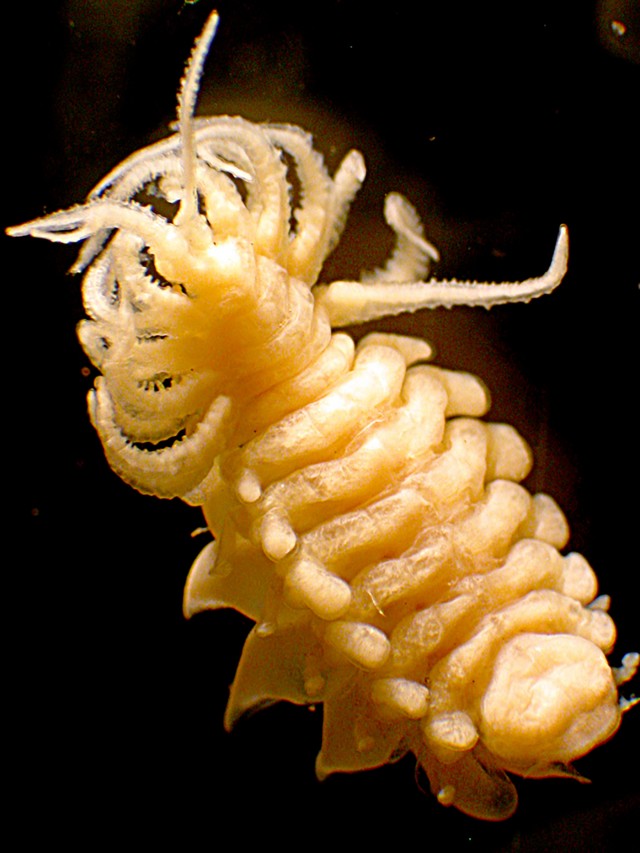Parasites Affect the Food Web More Than You Think, UCSB Researchers Say
June 18, 2013

This parasitic isopod, Leidya, which is related to rolley pollies, is one of the parasites that UCSB researchers included in the new food webs. The isopod is almost one centimeter long, and was found infecting a crab. Credit: Ryan Hechinger
Parasites are ubiquitous. They feed on virtually every animal and even on each other. Yet, for all the parasites' collective contributions to biomass and biodiversity, conventional food webs don't account for the presence of these tiny and numerous consumers. A recent study featuring work by several UC Santa Barbara scientists focuses on the impact parasites have on food webs, with findings that are expected to alter our picture of who-eats-who. The paper, "Parasites Affect Food Web Structure Primarily through Increased Diversity and Complexity," appears in the latest edition of PLoS Biology.
Related Links